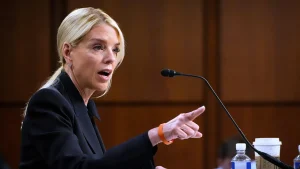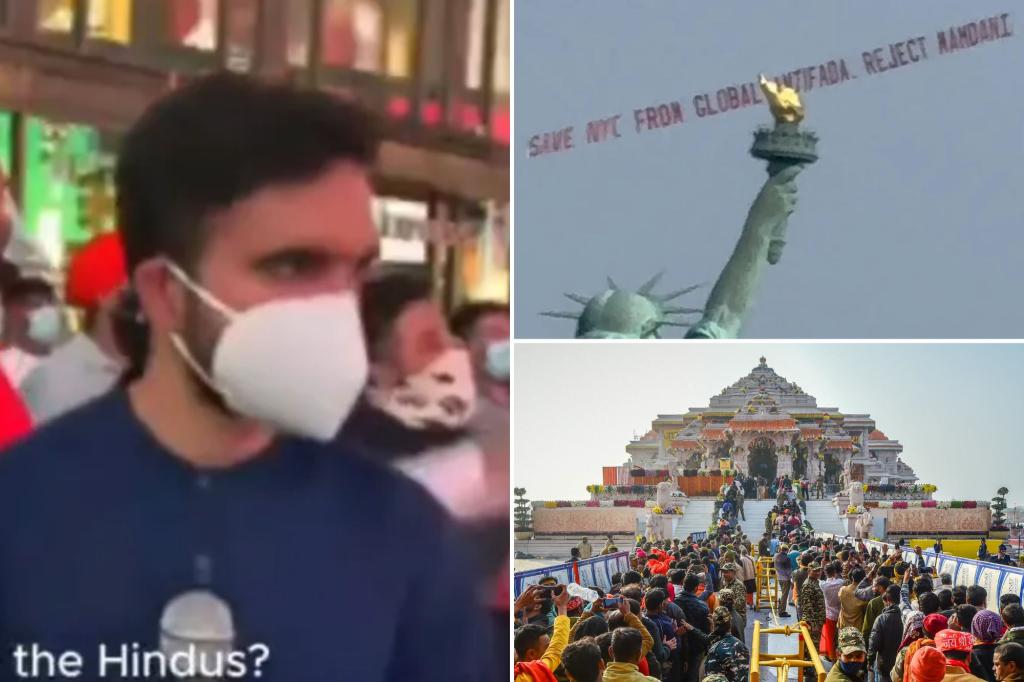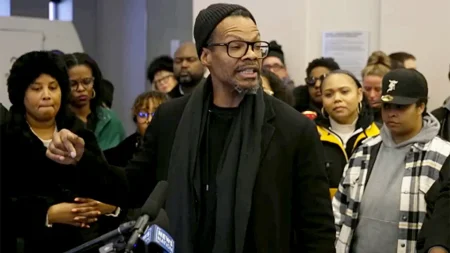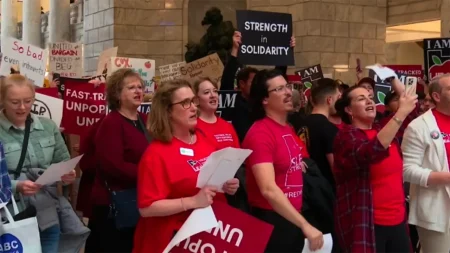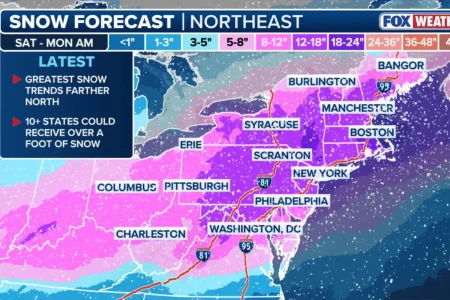Zohran Mamdani’s Controversial Campaign Draws Concern from New York’s Hindu Community
New York’s mayoral race has become unexpectedly complicated as Democratic Socialist candidate Zohran Mamdani faces growing criticism from the city’s Hindu community. As the son of Muslim and Hindu parents with roots in India, Mamdani has found himself embroiled in controversies that many fear are importing distant sectarian tensions into the heart of America’s most diverse city. Hindu community leaders have expressed alarm over what they perceive as Mamdani’s antagonistic stance toward their faith, pointing to several incidents that have damaged trust between the candidate and Hindu New Yorkers. Their concerns have intensified since Mamdani secured the Democratic nomination in June, with many questioning whether his leadership would preserve the city’s tradition of multicultural harmony or introduce divisive politics based on overseas conflicts.
The controversy stems largely from Mamdani’s involvement in protests against developments in India and his rhetoric regarding Indian politics. In 2020, Mamdani attended a demonstration in Times Square against the construction of Ram Mandir, a Hindu temple in Ayodhya, India. The temple site has profound historical significance, as it sits on land that Hindus consider sacred but which had been occupied by a mosque for centuries until a 2019 Indian court ruling returned it to Hindu control. During this protest, Mamdani was filmed alongside activists who reportedly chanted “all Hindus are bastards” in Hindi. Adding to tensions, when a statue of Gandhi outside a Hindu temple in Queens was vandalized three years ago, Hindu community members note that while other mayoral candidates promptly condemned the act, Mamdani remained conspicuously silent. These incidents have left many Hindu New Yorkers questioning whether Mamdani can fairly represent their interests in City Hall.
The 33-year-old candidate has further alienated Hindu voters through his characterization of Indian politics, particularly his criticisms of India’s democratically elected Prime Minister Narendra Modi, whom he has labeled a “fascist” and “war criminal.” Mamdani has suggested that Modi should be banned from entering the United States, drawing parallels between India’s leader and Israeli Prime Minister Benjamin Netanyahu. He has also made controversial claims about religious violence in the Indian state of Gujarat following civil unrest in 2002, suggesting there was a “mass slaughter of Muslims” that nearly erased the Muslim population—assertions that Hindu activists counter are factually incorrect, pointing out that Gujarat’s Muslim population remains substantial at over six million people and continues to grow. For many Hindu New Yorkers, these statements reflect a troubling pattern of inflammatory rhetoric that they fear could exacerbate tensions in their multicultural city.
Last month, Hindu-American leaders took the extraordinary step of signing a letter to India’s foreign minister urging intervention against what they described as Mamdani’s “Hinduphobic lies.” Among the signatories was Lakshmi Bandlamudi, a psychology professor at LaGuardia Community College, who expressed feeling “disappointed and shocked” by Mamdani’s primary victory. She characterized him as “ethically unsound” and warned that his positions could destroy the harmony that allows diverse communities to coexist peacefully in New York. Similarly, Satya Dosapati, a 67-year-old telecom worker from New Jersey, called Mamdani “a dangerous bastard” who fails to exercise the restraint expected of responsible politicians. The depth of concern within the Hindu community was further illustrated when a group funded an aerial banner over the Hudson River reading, “SAVE NYC FROM GLOBAL INTIFADA. REJECT MAMDANI,” days before the primary election.
Mamdani’s campaign has attempted to address these concerns, emphasizing his own Hindu heritage through his mother’s side of the family. In a statement, his team asserted that “Hinduism is a meaningful part of Zohran’s life” and that his values include ensuring that “every New Yorker, no matter their race, religion, or where they come from, deserves a city that values and protects them.” The campaign maintains that Mamdani “rejects rhetoric targeting Hindus and opposes any politics of bigotry.” However, Hindu advocacy groups remain skeptical. Suhag Shukla, executive director of the Hindu American Foundation, the largest Hindu advocacy group in the US, told reporters that they are “monitoring for any further dehumanizing rhetoric towards Hindus,” noting particular concern about Mamdani’s “liberal use of the terms ‘extremist’ and ‘fascist'” when discussing Hindu American leaders and religious symbols.
The controversy surrounding Mamdani highlights broader questions about how local politics in America’s diverse cities can become entangled with international conflicts and historical grievances. Critics worry that Mamdani’s approach risks importing sectarian tensions from the Indian subcontinent into New York’s delicate multicultural ecosystem. Former UN officer Rahul Sur questioned how someone who has called to “globalize the Intifada” could effectively govern “the most beautiful, accomplished, rich, diverse city in the world.” Meanwhile, Hindu activist Hemant Patel drew comparisons to London, suggesting that radical ideologies can transform even established Western cities in negative ways. As the mayoral campaign progresses, the challenge for Mamdani will be convincing New York’s diverse population—including its substantial Hindu community—that he can govern for all citizens, regardless of faith or background, rather than allowing overseas conflicts to divide the city’s communities. The concerns raised by Hindu New Yorkers highlight the complexity of maintaining harmony in a global city where residents bring not just their cultures but sometimes their historical grievances to their new home.


